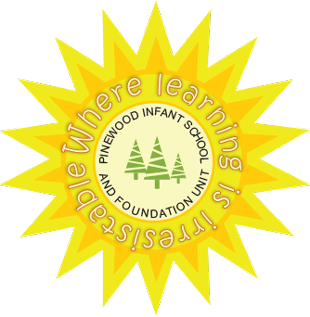Writing
National Handwriting Day 2026
This week, it has been National Handwriting Week. In school, we have worked really hard on improving our handwriting, especially letter formation and letters sitting on the lines. For National Handwriting Week, all children from F2 to Year 2 had a dragon poem to write up in their neatest handwriting. We talked about our letters being tall guys and fall guys and our work being something we are proud of. There were two winners chosen from each class- one boy and one girl - who have had their beautiful handwriting framed ready to be on display at our Art Exhibition in a few weeks time.
Our vision for writing is that children leave Key Stage 1:
- Being excellent communicators through writing legible sentences with good vocabulary, spelling and grammar and which are correctly punctuated;
- Seeing themselves as good writers, understand what it means to be a good writer and with a knowledge of how they can get even better;
- Having positive attitudes towards writing and write for pleasure;
- Being self-reflective and independent checking their writing where possible;
- Writing a range of text for a purpose and an audience that both inform and entertain and can communicate information, ideas, imagery and emotion.
How do we teach writing at Pinewood?
Writing is an essential life-skill and we encourage our children to develop positive attitudes towards writing by exposing them to a range of quality texts and giving them a purpose to write. We provide a balance between writing process and outcome (end piece of writing) with careful thought as to the audience and purpose. Our writing sequences at Pinewood follow this framework, which is adapted and responsive to children’s needs and the year group they are in:
- Read and explore the quality text/genre,
- Teach writing skills of that genre and practise the skills taught,
- Model and practise writing in that genre - this includes planning our own writing linking to that text type,
- Have a go at writing independently
- Share and reflect on our writing
We start off all our writing sequences by immersing our children in a quality text, whether fiction or non-fiction. We give lots of opportunities for children to practice orally rehearsing sentences through actions and drama and we encourage children to 'talk like the text'. A multi-sensory approach is used to help children remember key features of the text; we simplify the model text using a visual story map, flow map, story mountain or boxing up approach and we practice retelling the story regularly using Pie Corbett's talk for writing actions. As children learn the text, they build up their bank of interesting vocabulary, phrases and types of plot which they can then use in their own writing.
Throughout our writing sequence of learning, we follow many of Pie Corbett’s Talk for Writing principles because they are such a powerful way for children to internalise and imitate our language and if they can tell us a story, they can write a story.
Each year group will cover different texts using the Talk For Writing. We read the texts, develop our own actions with the children to allow them to retain the story and then through repetition and actions, children retain the text, helping them to write more confidently.
Genre-specific writing skills are then introduced and these are taught through shared and guided writing sessions. In Key Stage 1 we learn about grammar and sentence structure. Teachers give immediate, supportive and structured feedback throughout the sequence of work so our children gain confidence and know what their next steps are in order to become better writers.
By the end of our sequence of work, children are given an opportunity to independently apply the writing skills which have been taught and practised. Some writers will take more ownership of their work and have the opportunities to innovate and invent their work demonstrating different writing techniques learnt. Some children will prefer to use the shared text to support their independent writing. By the end of Year 2 we aim for their writing to become increasingly independent; adding, embellishing, altering and manipulating the original structure.
Spelling
At our school, spelling is taught through a range of approaches, including phonics, reading and writing. Children are given regular opportunities to practise and apply their spelling knowledge, learning key words in a variety of fun and memorable ways. We also encourage the use of strategies such as mnemonics to support memory and recall.
Each child in Key Stage 1 has their own personalised spelling list, enabling them to work at the level and pace that is right for them. These spellings are kept at the front of their English book, so children are encouraged to refer back to them during lessons and independent writing.
Our aim is to develop confident, independent writers who take pride in their spelling. To support this, a range of resources is always available in classrooms, and children are encouraged to become ‘Superstar Spellers’ through regular practice and celebration of their progress.
Handwriting
At Pinewood, we recognise that handwriting is a vital skill which underpins children’s progress across the curriculum. Last year, we placed a strong focus on improving standards of handwriting, letter formation and legibility. As a result, all children now take part in daily handwriting sessions, as well as practising discreetly within their writing lessons.
We know that fluent, legible handwriting not only helps children to communicate their ideas clearly but also builds confidence and pride in their written work. By embedding good handwriting habits from the start, we ensure that children leave our Infant School able to write at the Year 2 National Standard, fully prepared for the next stage of their learning journey.





